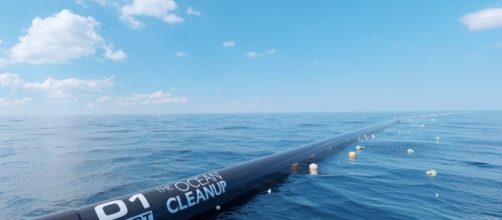A lot of debate has been rising over the topic of trash collection from the ocean recently, especially after the efforts of Boyan Slat for a massive North Pacific ocean clean up surfaced. Where Boyan Slat hopes to clean the ocean through the use of huge solar powered trash collectors, the original approach of ocean cleaners has been the reduction of plastic use altogether.
Boyan Slat is a 22-year-old inventor who set out to clean the Great Pacific Garbage Patch in the North Pacific gyre through the creation of The Ocean Cleanup organization. The idea is to launch a number of floating trash collectors.
The trash collected would then be funneled towards a central tank that would be emptied every month by ships. The collected waste would then be recycled and sold to fund the project.
The vision is definitely an impressive one, but critics are skeptic about it. According to them focussing on cleaning the shores is more cost effective and worthy. The efforts seem wasted to them. After all, reducing the use of plastic would eventually solve the ocean plastic crisis anyway.
Their arguments are not baseless though. The strategy of reduction has shown significant results so far. Jon van Franeker of Wageningen Marine Research in Netherlands did a research on seabirds and derived that the last two decades has shown a striking 75 percent decrease of ingested plastic cases, owing to the reduction of industrial plastic entering the North Sea.
The Ocean Cleanup
The Ocean Cleanup, Slat’s organization that was set up in 2013, unveiled a design improvement on their clean up systems allowing them to increase it’s efficiency exponentially. The statement made on the 11th of May was promising. Slat estimates that this improvement could enable them to remove half of the Great Pacific Garbage Patch in a duration of merely 5 years.
The original system was set to launch in 2020, however, the technical improvements would allow the first launch in 2018, 2 years ahead of time.
The debate continues
While the debate whether Slats’ efforts will bear fruit or not remains: everything seems set in the theoretical phase but how far will it be successful practically?
That is the question.
Critics have a lot to claim. There are bound to be technical limitations. And what about the marine life? A massive clean up is bound to affect it. Critics also argue that plastic trash usually floats down to the ocean bed. It could never be discovered by floating trash detectors.
The arguments rain in as Slat continues his work on The Ocean Cleanup project. It may be something we could all argue about endlessly. However, isn’t it a dime worth throwing?
If one group of environmentalists focus on reducing plastic and the other on cleaning it from the ocean, wouldn't the results be better, quicker and more efficient?


